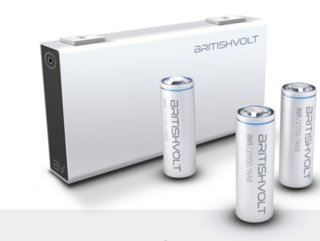Glencore and Britishvolt to build battery recycling plant

Glencore has announced a battery recycling joint venture with strategic partner Britishvolt, which will see a new recycling plant developed at the Britannia Refined Metals (BRM) operation in Northfleet.
The project sees a return to recycling for BRM, which will continue with its current production and trading operations. securing existing jobs and creating new ones.
On completion, slated for mid-2023, the plant will be Glencore and Britishvolt’s first battery recycling facility in the UK with an expected processing capacity of a minimum of 10,000 tonnes of lithium-ion batteries per year, including but not limited to valuable battery manufacturing scrap, portable electronics batteries and full EV packs. Britishvolt plans to have lithium-ion batteries in production by the end of 2023 (click here).
https://energydigital.com/technology-and-ai/britishvolt-invests-pound26bn-england-battery-gigaplant
The facility will process all Britishvolt’s battery manufacturing scrap from its Blyth Gigafactory and in the long-term, aim to be fully powered by renewable energy.
The partnership will also look to develop other recycling activities such as the refining of black mass into battery grade raw materials.
The JV will leverage Glencore’s experience across materials such as discarded electronics, copper/alloy scraps and black mass. Both companies believe that battery recycling will form a key part of the energy transition, efficiently recovering the critical metals needed for the energy transition, and aim to create a circular economy that supplies recycled materials and minerals back into the battery supply chain.
David Brocas, Head Cobalt Trader at Glencore, said both companies are united in their ambition to further the energy and mobility transition, and Glencore has decades of recycling experience across multiple disciplines (e-waste/copper scrap/battery).
“This recycling partnership complements our long-term supply agreement for responsible cobalt from our operations in Norway and the Democratic Republic of Congo,” he said. “We believe the opportunity to utilise BRM’s operations as a cutting-edge battery recycling facility will help support the development of a UK battery recycling industry. It will also play a part in furthering the UK’s climate ambitions as well as Glencore’s as we work towards net zero total emissions by 2050.”
Timon Orlob, Global Chief Operating Officer, Britishvolt, said the partnership adds much to its existing relationship with Glencore, supplying Britishvolt with responsibly-sourced cobalt.
“Recycling is key to a successful energy transition and has always been a major part of Britishvolt’s business model,” he said. “We’ve been looking for the perfect partner to help kick start a UK battery recycling industry and FTSE 100-listed Glencore has expert historical experience in recycling. This JV will help us both to create a truly sustainable battery value-chain, create jobs and develop new battery recycling technologies. Both Britishvolt and Glencore are fully committed to reducing carbon across the supply chain.”
The partnership also aims to research how to make the recycling of EV batteries easier and more cost effective, maximising their supply chain value and to influence legislation, including increasing regulation of recycling and ESG requirements.
It will also allow Britishvolt to assist its OEM customers on their path to sustainability, by offering hedging opportunities against swings in raw materials prices.
Britishvolt’s Gigaplant will create many highly skilled jobs, regenerating a site that was previously home to the UK’s largest coal-fired power station. It recently signed an MoU with UK sports car manufacturer Lotus to demonstrate tailor-made battery cells.
According to the Faraday Institution, although large amounts of lithium-ion battery packs will be available for recycling from around 2028, there are no substantial recycling facilities currently in the UK. Many UK manufacturers currently export used batteries to European facilities for recycling. Greenpeace data also suggests that around 12.85mn tons of EV lithium-ion batteries will go offline between 2021-2030. End of life EV batteries will become a valuable part of the battery supply chain and could further the creation of high-tech UK jobs.
Tritax and abrdn are to fund the building of Britishvolt's Gigafactory shell and core in Northumberland, as well as develop the associated supplier park (click here).






